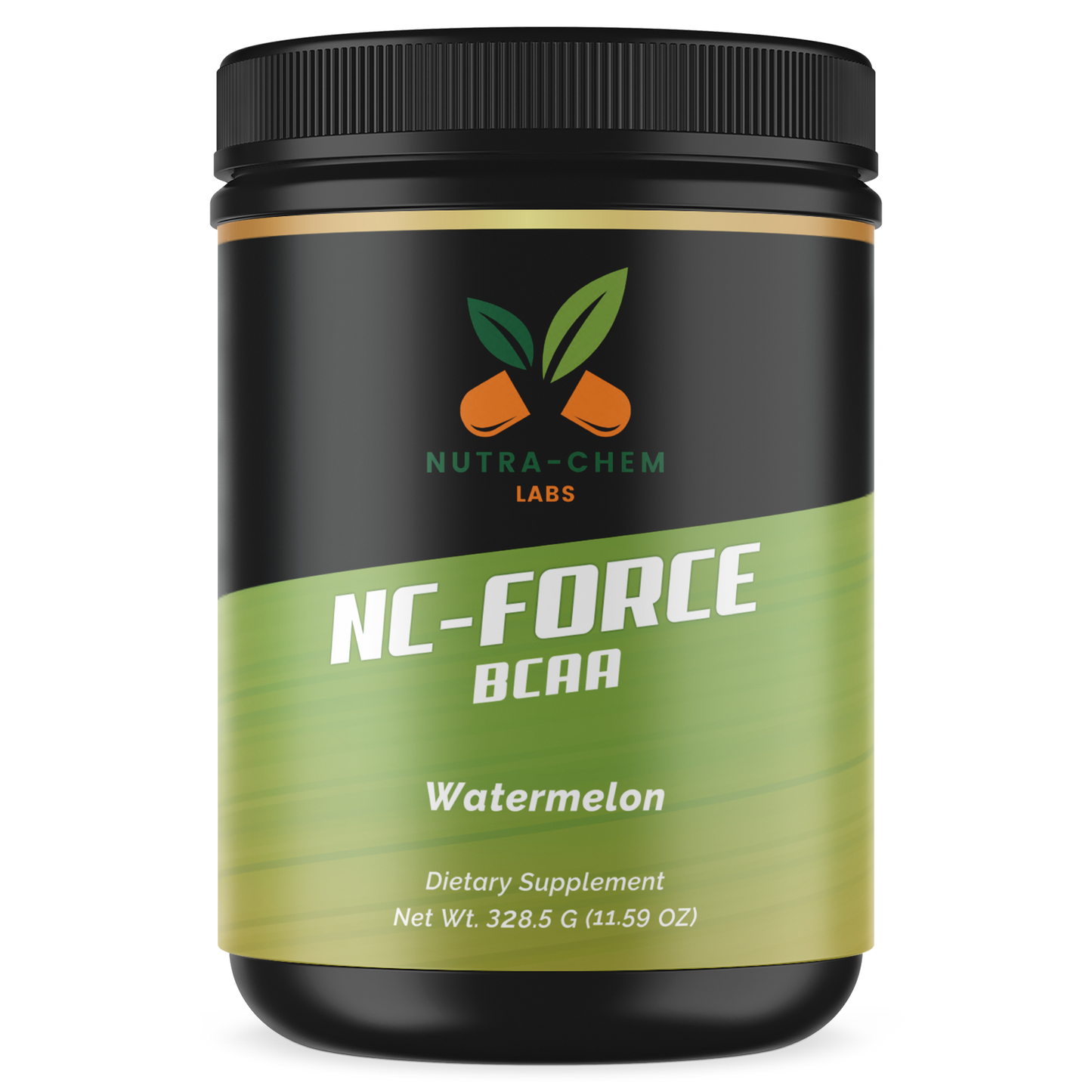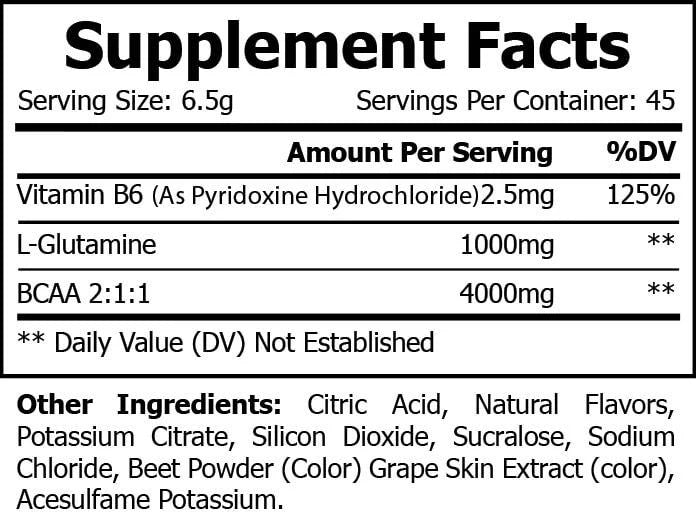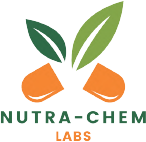- Description
- Key Ingredients & Benefits
- Usage & Directions
- Quality Standards
- Warnings
- Sources
NC-FORCE Watermelon BCAA is designed to enhance exercise performance, muscle growth, and recovery. Packed with branched-chain amino acids (BCAAs) in an optimal 2:1:1 ratio, this post-workout supplement helps prevent muscle breakdown, supports immunity, and boosts gut health. Enriched with L-glutamine and Vitamin B6, it fuels your body with the nutrients needed for recovery and energy after intense workouts.
- Muscle Growth and Recovery: Leucine stimulates muscle protein synthesis, while valine and isoleucine help maintain muscle tissue.
- Enhanced Exercise Performance: BCAAs reduce fatigue and improve focus, giving you the edge during intense workouts.
- Immune and Gut Health: L-glutamine fuels immune cells and supports a healthy gut microbiome.
- Energy Boost: Vitamin B6 helps convert food into energy and supports overall metabolic health.
BCAA 2:1:1 Ratio : Promotes muscle protein synthesis, reduces muscle tissue breakdown, and improves exercise performance.
L-Glutamine : Enhances exercise recovery, supports immune function, and optimizes gut health.
Vitamin B6 : Supports energy production, blood sugar regulation, and cardiovascular health.
Mix 1/2 scoop (6.5g) in 8-10 oz of cold water or your favorite beverage. Take pre-workout, post-workout, or between meals for best results.
- High-Quality Ingredients: Third-party tested, made in the USA, and produced in an FDA-registered, GMP-certified facility.
-*These statements have not been evaluated by the Food and Drug Administration. This product is not intended to diagnose, treat, cure, or prevent any disease. -Tamper Seal: Use only if the seal is intact. Consult your health care practitioner if you are pregnant or nursing, taking medications, or have a medical condition, before taking this or any other product. -Store in a cool, dry place. Keep out of reach of children.
18. Cruzat, V., Macedo Rogero, M., Noel Keane, K., Curi, R., & Newsholme, P. (2018). Glutamine: Metabolism and Immune Function, Supplementation and Clinical Translation. Nutrients , 10 (11), 1564. https://doi.org/10.3390/nu10111564
38. Ueland, P. M., McCann, A., Midttun, Ø., & Ulvik, A. (2017). Inflammation, vitamin B6 and related pathways. Molecular aspects of medicine , 53 , 10–27. https://doi.org/10.1016/j.mam.2016.08.001
39. Bird R. P. (2018). The Emerging Role of Vitamin B6 in Inflammation and Carcinogenesis. Advances in food and nutrition research , 83 , 151–194. https://doi.org/10.1016/bs.afnr.2017.11.004
40. Mascolo, E., & Vernì, F. (2020). Vitamin B6 and Diabetes: Relationship and Molecular Mechanisms. International journal of molecular sciences , 21 (10), 3669. https://doi.org/10.3390/ijms21103669
41. Nie, C., He, T., Zhang, W., Zhang, G., & Ma, X. (2018). Branched Chain Amino Acids: Beyond Nutrition Metabolism. International journal of molecular sciences , 19 (4), 954. https://doi.org/10.3390/ijms19040954
42. Fan, P., Li, L., Rezaei, A., Eslamfam, S., Che, D., & Ma, X. (2015). Metabolites of Dietary Protein and Peptides by Intestinal Microbes and their Impacts on Gut. Current protein & peptide science , 16 (7), 646–654. https://doi.org/10.2174/1389203716666150630133657




